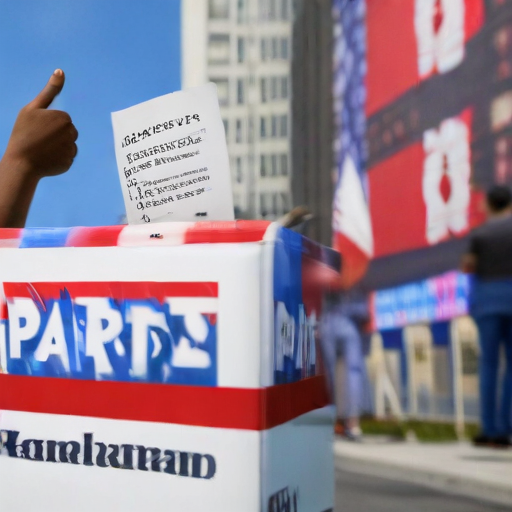Goldman Sachs has analyzed the implications of potential economic policies under Vice President Kamala Harris if she becomes the Democratic presidential nominee, particularly following President Biden’s decision to not seek re-election. In a recent statement, Biden endorsed Harris, who has received support from notable figures such as California Governor Gavin Newsom and Pennsylvania Governor Josh Shapiro.
The investment firm indicates that economic policies would not significantly change under Harris’s candidacy. Goldman Sachs, led by chief economist Jan Hatzius, believes that the Democrats’ fiscal and trade agenda would largely remain consistent, regardless of whether Harris or Biden leads the party. They estimate that the likelihood of Democratic success in the upcoming election is slightly below 40%, a modest increase following the announcement of Harris’s candidacy.
Goldman predicts that taxes will take center stage in fiscal discussions beginning next year, particularly with the looming expiration of personal income tax cuts from the Tax Cuts and Jobs Act by 2025. Key forecasts include a potential increase in the tax rate for high earners, from 35%/37% to 39.6%, and a proposed higher corporate tax rate. The firm expresses skepticism on Congress’s willingness to adopt these changes, anticipating a more moderate tax outcome.
If Harris secures the nomination, speculation surrounds potential vice presidential candidates, with names such as Shapiro, North Carolina’s Roy Cooper, Kentucky’s Andy Beshear, and Arizona Senator Mark Kelly being mentioned.
In summary, the shift to Harris’s candidacy indicates continuity in the Democratic economic strategy, which may foster some stability amid changing political landscapes. While challenges remain, the support from key Democratic leaders suggests that the party aims to present a unified front as it prepares for the upcoming election. This continuity in economic planning could reassure investors and the public, encouraging a measured outlook for the future.
